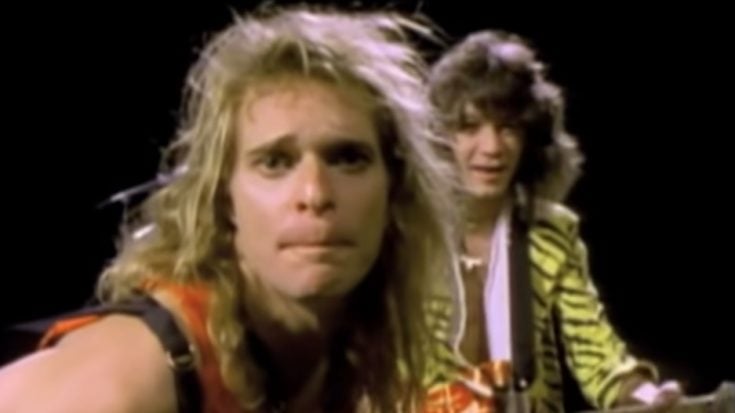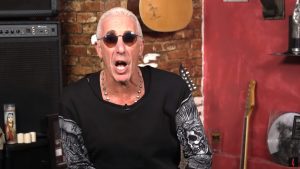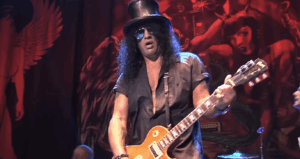10 Most Dramatic Band Breakups In History

Van Halen for "Jump" - VHTelevision / Youtube
Some bands burst onto the scene with unstoppable energy, only to implode under the weight of their own success. The creative sparks that once fueled groundbreaking music can just as easily ignite explosive tensions, leaving shattered friendships and unfinished legacies in their wake. When the dust settles, fans are often left piecing together the drama, trying to understand how something so great could unravel so spectacularly.
Whether fueled by clashing egos, toxic relationships, or the unrelenting pressure of fame, these breakups left lasting scars on the music world. Some bands dissolved in a blaze of public feuds and legal battles, while others eroded behind closed doors, their fractures only revealed years later. No matter how it happened, each split marked the end of an era—sometimes a tragic one.
For some, the exit was final, a bitter farewell with no second chances. Others limped forward with new members, attempting to recapture the magic that had once defined them. The results? A mix of redemption, reinvention, and in some cases, proof that lightning rarely strikes twice.
Malcolm McLaren Pushed the Sex Pistols to Collapse for the Sake of Chaos
The Sex Pistols were never meant to last—at least not according to their manager, Malcolm McLaren. Instead of nurturing the band’s success, McLaren deliberately stoked internal conflict, believing it would enhance their reputation as punk’s most rebellious act. His most notorious move was replacing bassist and songwriter Glen Matlock with Sid Vicious, a heroin-addicted novice who could barely play his instrument.
McLaren’s philosophy was clear: destruction was more interesting than longevity. He booked the band’s U.S. tour in cities where their aggressive style would provoke hostility rather than praise. The result was a chaotic series of performances marred by fights, substance abuse, and audience backlash.
By the time they reached their final stop in San Francisco’s Winterland Ballroom, frontman Johnny Rotten had had enough. With a bitter smirk, he sneered at the crowd, “Ever get the feeling you’ve been cheated?” before quitting the band entirely. The Sex Pistols’ implosion was as dramatic as their rise, leaving behind a legacy of punk rock anarchy that was as brief as it was explosive.
The Police’s Creative Tensions Turned Their Success Into a Battleground
When The Police first formed in 1977, their chemistry seemed undeniable. Sting, Andy Summers, and Stewart Copeland created some of the most iconic new wave hits of the era. But as their fame skyrocketed, so did the friction—mainly over songwriting. Sting dominated the creative process, much to the frustration of his bandmates, who felt sidelined.
Tensions reached a breaking point when Sting openly dismissed Summers’ and Copeland’s songwriting contributions, referring to the band’s structure as a “benign dictatorship.” The resentment only grew during their grueling world tours, where personal and professional conflicts escalated behind the scenes.
After their 105-show tour in 1984, the band reached its limit. While they never made an official breakup announcement, they quietly disbanded, each member pursuing solo careers. Their chemistry may have made them legends, but it also ensured that their time together would be short-lived.
The Beatles’ Breakup Was a Perfect Storm of Clashing Egos and Tragedy
By the late 1960s, The Beatles were more than just a band—they were a cultural phenomenon. But behind the scenes, the cracks had been forming for years. While Yoko Ono is often blamed for their split, the real reasons ran far deeper, beginning with the loss of their manager, Brian Epstein.
Epstein had been the glue holding the band together, balancing their personalities and managing their business affairs. His sudden passing in 1967 left a leadership vacuum, and Paul McCartney’s attempts to fill that role were met with resistance—particularly from John Lennon. As creative differences intensified, Lennon and McCartney found themselves locked in an unspoken battle over the band’s direction.
When Lennon brought Yoko Ono into the fold, it only widened the divide. But rather than her being the cause of their downfall, she became a convenient scapegoat. In reality, the Beatles’ breakup was an inevitable outcome of years of internal struggles, personal growth, and competing ambitions. Their final days may have been filled with tension, but their legacy remains untouchable.
View this post on Instagram
David Crosby’s Comments on Neil Young’s Relationship Ended CSNY for Good
Crosby, Stills, Nash & Young had survived decades of turbulence, but one thoughtless comment finally pushed the band past the point of no return. When Neil Young began dating actress Daryl Hannah in 2014, David Crosby publicly criticized her, calling her a “poisonous predator.”
The backlash was immediate. Young was furious, and although Crosby later apologized, the damage was done. He admitted in an interview that he had spoken out of line, acknowledging that it wasn’t his place to judge Young’s personal life. But despite his attempts at reconciliation, Young refused to forgive and declared that he would never perform with CSNY again.
Crosby’s words proved to be the band’s final nail in the coffin. While they had endured past conflicts, this time, there was no coming back. When Crosby passed in 2023, the dream of a CSNY reunion officially ended, leaving fans to wonder what might have been.
View this post on Instagram
Axl Rose and Slash’s Feud Tore Guns N’ Roses Apart
At the height of their fame, Guns N’ Roses were unstoppable—until internal power struggles tore them apart. Axl Rose, the band’s volatile frontman, wanted complete control, while Slash and the rest of the members grew increasingly frustrated with his erratic behavior.
Things came to a head in 1991 when Slash recorded tracks with Michael Jackson, a move that enraged Rose. Given Rose’s history of childhood abuse and his belief in the allegations against Jackson, he saw Slash’s collaboration as an unforgivable betrayal. Their relationship never recovered.
As Rose continued to show up late for concerts and make unpredictable decisions, tensions boiled over. Slash left the band, and soon after, Guns N’ Roses as fans knew them ceased to exist. While various versions of the band carried on, the original magic was gone—another case of rock ‘n’ roll egos proving too big to coexist.
The Beach Boys’ Feud Over Musical Direction and Band Name Never Truly Ended
By the time Pet Sounds was released in 1966, The Beach Boys had already cemented their status as pop icons. But behind the harmonies, tensions were rising—particularly between Brian Wilson and his cousin, Mike Love. Wilson’s increasingly experimental songwriting, influenced by his struggles with mental health and LSD use, clashed with Love’s preference for radio-friendly hits. Their creative divide deepened when work on Smile became chaotic, leading to the album being scrapped.
As years passed, their personal and professional conflicts played out in public, from biting press statements to bitter legal battles over royalties. Love’s 1991 acquisition of the Beach Boys’ name allowed him to tour under the moniker while Wilson, Al Jardine, and David Marks performed separately. Their 2012 reunion seemed like a hopeful reset, but it didn’t last long.
The final straw came in 2022 when Love used the Beach Boys’ name for a performance at the Safari Club International Convention, an event Wilson strongly opposed. Once again, the rift between the bandmates proved irreparable. Despite decades of music history, The Beach Boys remain a fractured entity, with Wilson and Love embodying two vastly different visions of what the band was meant to be.
View this post on Instagram
Simon & Garfunkel’s Friendship Never Recovered from Years of Betrayal
Paul Simon and Art Garfunkel’s bond stretched back to their childhood, but fame and ambition turned their partnership into a rivalry. The first major crack formed early in their career when Simon secretly recorded solo tracks behind Garfunkel’s back. That betrayal set the stage for years of resentment, as Simon took control of the duo’s songwriting while Garfunkel’s angelic voice made him the perceived frontman.
Their simmering jealousy reached a breaking point in 1970 when Garfunkel prioritized an acting role in Carnal Knowledge over recording their next album. Simon took this as the ultimate slight, and rather than confronting his longtime friend, he simply moved on. They never officially announced a breakup, but their final concerts that year at Forest Hills Stadium marked the end.
While they reunited sporadically for performances over the years, old wounds never fully healed. By 2016, Simon dismissed any future collaborations, bluntly stating, “We don’t get along.” Their decades-long friendship, once built on mutual admiration, had collapsed under the weight of ego and unresolved grievances.
The Eagles’ Onstage Threats Foreshadowed Their Inevitable Demise
By the late 1970s, The Eagles were one of the biggest bands in the world, but their success came at a cost. The pressure of following up Hotel California bred animosity, particularly between Don Felder and Glenn Frey. Their backstage disagreements escalated into open hostility, culminating in a legendary onstage meltdown in 1980.
During a benefit concert for Senator Alan Cranston, Felder made a dismissive comment about the politician, enraging Frey. What followed was a performance seething with tension, as the two men openly threatened each other between songs. As Frey later recalled, “We’re out there singing ‘Best of My Love,’ but inside both of us are thinking, ‘As soon as this is over, I’m gonna kill him.’”
The band split soon after but reunited in 1993 for the Hell Freezes Over tour. However, old tensions resurfaced, and Felder was fired in 2001. When Frey passed in 2016, the remaining members invited his son, Deacon, to step in, but the band was never quite the same.
Van Halen’s Toxic Dynamic Led to Three Major Breakups
Van Halen’s history is one of repeated implosions, fueled by personal grudges and power struggles. The first breakup came in 1984, when Eddie Van Halen accused David Lee Roth of prioritizing his solo career and film aspirations over the band. Their split was anything but amicable, with Eddie declaring in Rolling Stone, “The band as you know it is over… Dave left to be a movie star.”
Replacing Roth with Sammy Hagar didn’t solve the band’s internal dysfunction. By 1996, tensions boiled over when they were approached to record a song for Twister. Hagar later claimed he was fired over the phone on Father’s Day, while Eddie insisted Hagar had quit. The fallout was ugly, but the band carried on—only to have another meltdown in 2004 during their attempted reunion with Hagar. Eddie, struggling with substance issues, lashed out at Hagar over his tequila brand, sparking yet another public feud.
Despite their long history of conflicts, Hagar and Eddie reconciled before Eddie’s passing in 2020. However, Van Halen’s legacy remains one of brilliant music overshadowed by relentless infighting.
Fleetwood Mac’s Romantic Entanglements and Betrayals Fueled Their Breakups
Fleetwood Mac’s history reads like a soap opera, with affairs, betrayals, and breakups constantly reshaping the band. Even as they recorded Rumours—their most successful album—most of the members were embroiled in personal turmoil. Christine and John McVie were divorcing, Stevie Nicks and Lindsey Buckingham’s toxic relationship was falling apart, and Mick Fleetwood was entangled in an affair of his own.
Somehow, they channeled their pain into music, creating an album filled with heartbreak and longing. But their volatile relationships continued to cause problems. Over the years, various members left and rejoined, with Buckingham’s departure in 2018 being one of the most contentious. After a reported incident involving Nicks at a band event, she issued an ultimatum: him or her. The band chose Nicks, and Buckingham filed a lawsuit against them.
While Fleetwood Mac never formally disbanded, Christine McVie’s passing in 2022 made a reunion highly unlikely. Their story is proof that even the most brilliant music can come at a personal cost, leaving behind a tangled web of unresolved conflicts.
View this post on Instagram











